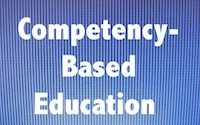
Development of Youth Digital Citizenship Scale and Implication for Educational Setting
Digital citizens need comprehensive knowledge and technological accessibility to the internet and digital world and teachers have a responsibility to lead them to become digital citizens. However, existing Digital Citizenship Scales contain too broad ranges and do not precisely focus on the target students, so teachers do not have clear criteria for facilitating young people […]















